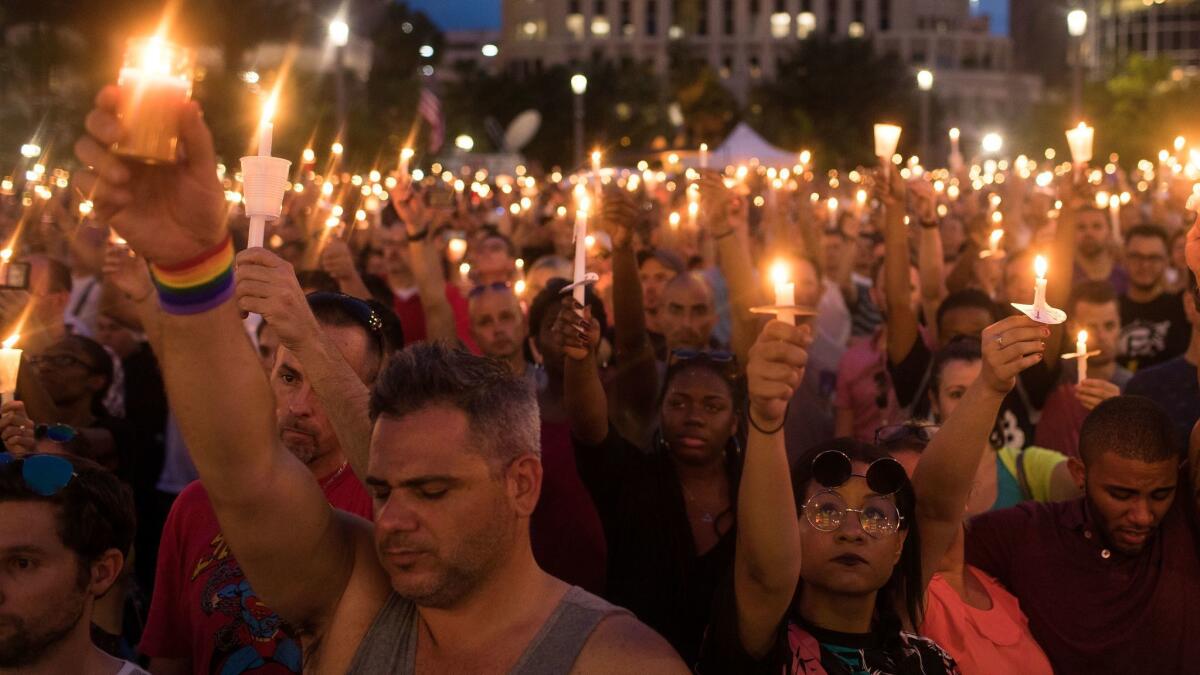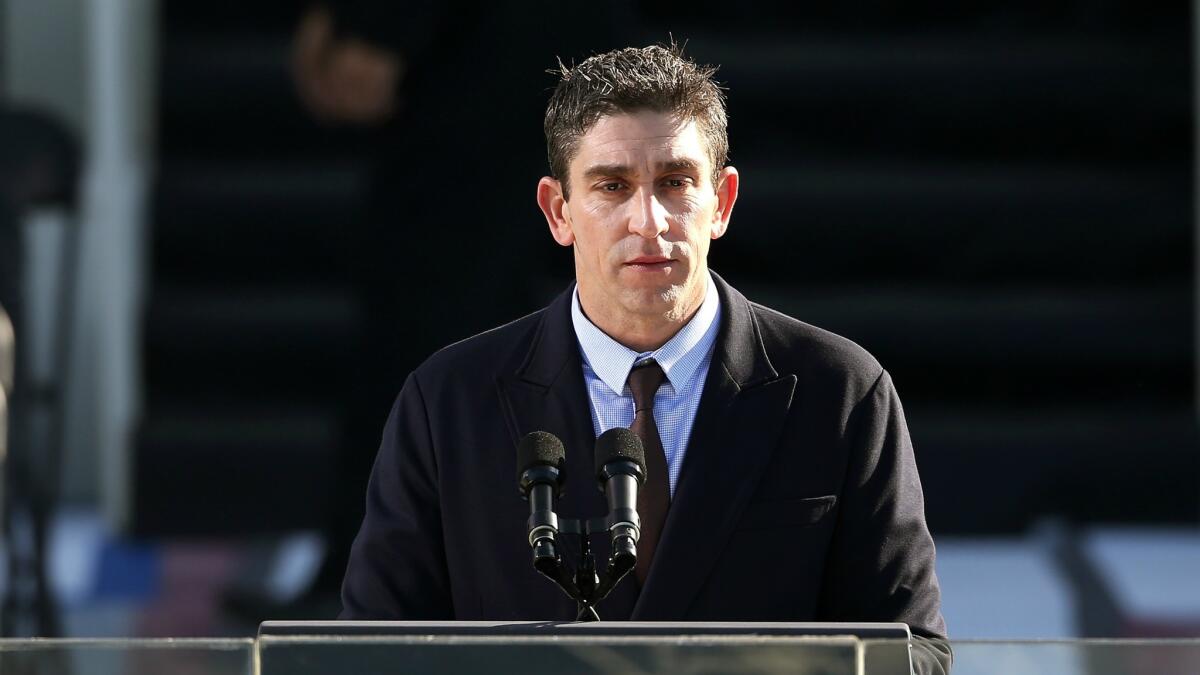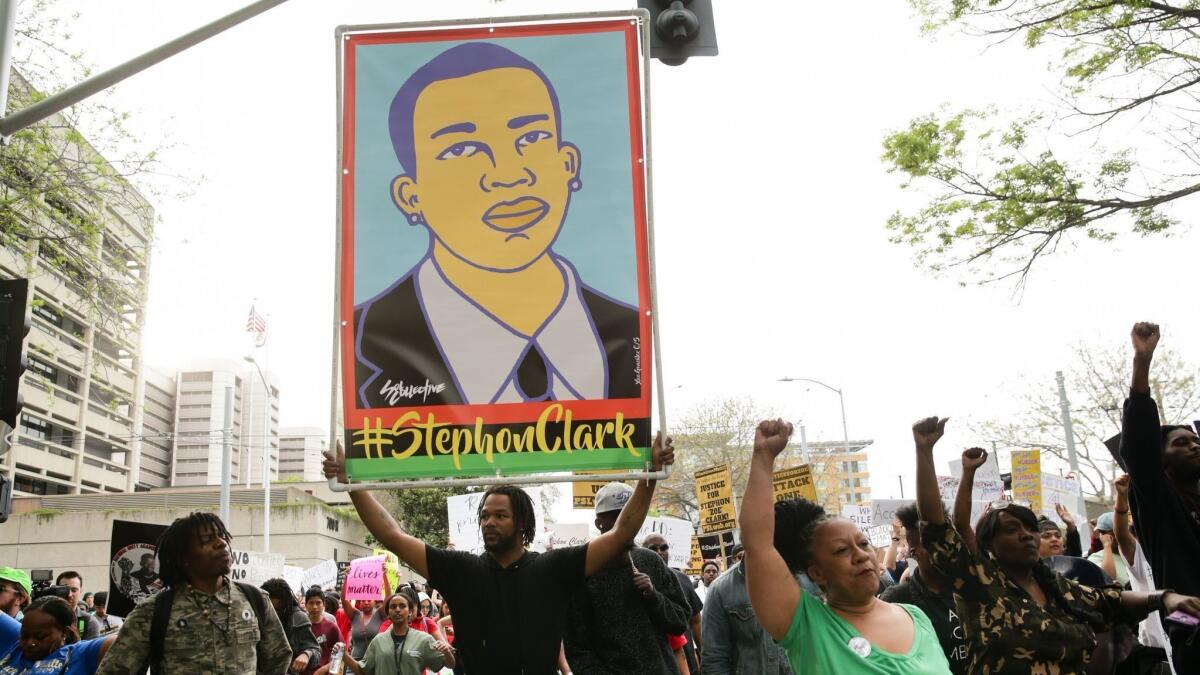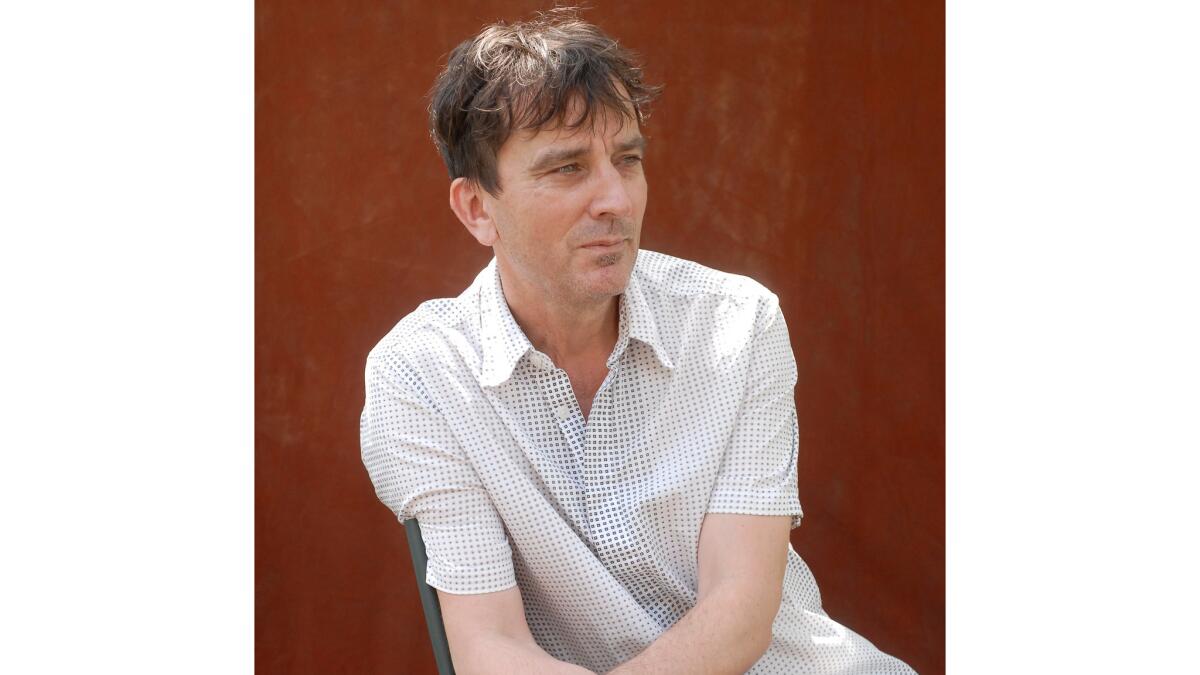What role can poetry play in our discussion of gun violence?

âBells have rung at vigils after Pulse, and the Charleston church shooting and the carnage at Las Vegas â and they rang again in the aftermath of the massacre at Marjory Stoneman Douglas High School, where another angry well-armed young man unleashed a hail of bullets and took seventeen lives. We ring bells to mourn and we ring them as well to sound the alarm. We must sound the alarm right now and everyday to end the epidemic of gun violence in our country.â
Kyle Dacuyan of PEN America spoke these words to a room of poets, writers and activists on March 9 at an offsite event during AWP, North Americaâs largest literary conference, for the poetry collection âBullets into Bells.â Although it was published in December 2017, the reading was a kind of prelude to the past month of walkouts, protests and marches across our nation.
Despite gun violence being a national conversation, this was a Floridian event, one taking place in a state still reeling from both Februaryâs Stoneman Douglas High School shooting and 2016âs Pulse Nightclub shooting. References to mass shootings and police abuse were not dealt with as hypotheticals. The audience, as well as the organizers and poets on stage, had been personally affected by gun violence. Everybody felled by a bullet had a name, along with a history and a friend in the room.
Soon after Barack Obama inaugural poet Richard Blanco stood to read from his poem âOne Pulse â One Poem,â a woman two rows in front of me began to weep. Sheâd made the less than two hour drive from Orlando for the event, as a part of the organization Moms Demand Action - FL.

Here, a poet spoke to a mother: âUse warm words to describe / the cold bodies of our husbands, lovers and wives, / our sisters, brothers and friends. Draw a metaphor / so we can picture the choir of their invisible spirits / rising with the smoke toward disco lights, imagine / ourselves dancing with them until the very end.â
This is a role poetry can play during our national debate â to invoke the beauty and value of each life lost. Individual stories and faces can be overlooked in discussion over policy â the victims of a shooting become a number (17 for Stoneman Douglas, 58 for Las Vegas, 28 for Sandy Hook, 13 for Columbine) instead of individuals with families, loved ones, communities. Of course, when those stories are brought up by politicians, they can seem cynical or removed from a personâs humanity. The difficulty of accepting the actual persons lost to gun violence has led to theories of âcrisis actors,â signaling that it is more palatable to accept a conspiracy rather than the death of a living, breathing person â especially when that person is a child.
The poetry reading, like the anthology, followed each poem with a response from an activist. After Blancoâs, Ladd Everitt, Director of One Pulse for America, writes, âOne day, I hope we can build awe-inspiring memorials to all the beautiful souls we have lost to gun violence and remember them with smiles and laughter. I just wish that day felt closer.â
After the response, the room took a minute to put itself back together. The mother was still crying â maybe over her son or daughter, or maybe over a strangerâs. The moment felt pure, uncynical. Perhaps this is another role that poetry plays as we attempt to unravel systemic gun violence: poetry is a source for raw, sincere emotion.

But poetry is not apolitical. As poet Jericho Brown read from his poem, âBullet Points,â it was difficult to miss the direct criticism of law enforcement.
ââŚI promise that if you hear / Of me dead anywhere near / A cop, then that cop killed me. He took / Me from us and left my body, which is, / No matter what weâve been taught, / Greater than the settlement a city can / Pay to a mother to stop cryingâŚâ
Of course, thereâs a difference between a mass shooter and dying in police custody. Yet, both speak to the very human struggle to understand the relationship between power and machinery. Itâs a bit messy thematically, but in a way thatâs circling the same discussion â about power and who gets to have it, especially when thereâs a weapon involved that can end a life so quickly when in the âwrong hands,â whomeverâs those may be.
âIn the case of this anthology, the alternative to policy is that folks (poets, victims of gun violence of all sorts) are getting together and studying with each other, trying to figure out how to do something that government and politicians wonât do,â said the poet Roger Reeves.
Reeves continued, âMy poem in the anthology is about suicide via gun. And neither the suicide that is referenced nor the prefiguring violence that occurred before the suicide would have occurred if there were more stringent laws concerning the procurement and owning of guns.â
From Reevesâ poem, âMaggot Therapyâ:
âTeach me again that I do not own this body / That walks me over this snow and cracked pavement, / The winter light pulling at my bare ankles, teach me / What to do with the dead I carry in my mouth, / Teach me to travel light with their bodies in my belly.â

In response to Reevesâ poem, Yvonne Crasso writes, âI have learned from [survivors of gun violence] that no one is exempt from gun violence. Not in a school, a theater, or their homes. We all grieve differently, yet we all grieve just the same â we carry our dead with us everywhere we go.â
Throughout the anthology and evening, the image of a loved one, usually a mother, still crying, still holding on, permeates. The image emerges again and again, but itâs never old. The pain of losing someone is always fresh, always necessary.

As poets Joy Harjo, Adrian Matejka and LeAnne Howe, among others, read from their work, the beauty of language rendered each image new, each poet mourning in the present, never letting grief slide into memory. Even as Nick Flynn read a poem first published eighteen years ago, it was difficult to not hear the urgency in his voice casting the poem necessary for the now.
âLook at this, one / bullet, / how almost nothing it is â â except for the part where itâs everything.
In response to Flynnâs poem, âMy Mother Contemplating Her Gun,â Ashlyn Melton, mother of Noah James Dangle (1998-2011), who was shot to death by his best friend, says:
âDonât call it an accident. That undermines all I try to do in sharing [my sonâs] story. It was a negligent incident. It was free will.â
For a moment, the room was silent, all considering our own negligence, our own accountability, our own stories â and the dead we all carry with us, everywhere we go.
RamĂrez is a Mexican Colombian writer, critic and performance poet based in Pittsburgh. She won the inaugural PEN/Fusion Emerging Writers Prize in 2015 for her novella-length work of nonfiction, âDead Boysâ (Little A, 2016). Her full-length work of nonfiction, âThe Violence,â is forthcoming from Scribner.
More to Read
Sign up for our Book Club newsletter
Get the latest news, events and more from the Los Angeles Times Book Club, and help us get L.A. reading and talking.
You may occasionally receive promotional content from the Los Angeles Times.








